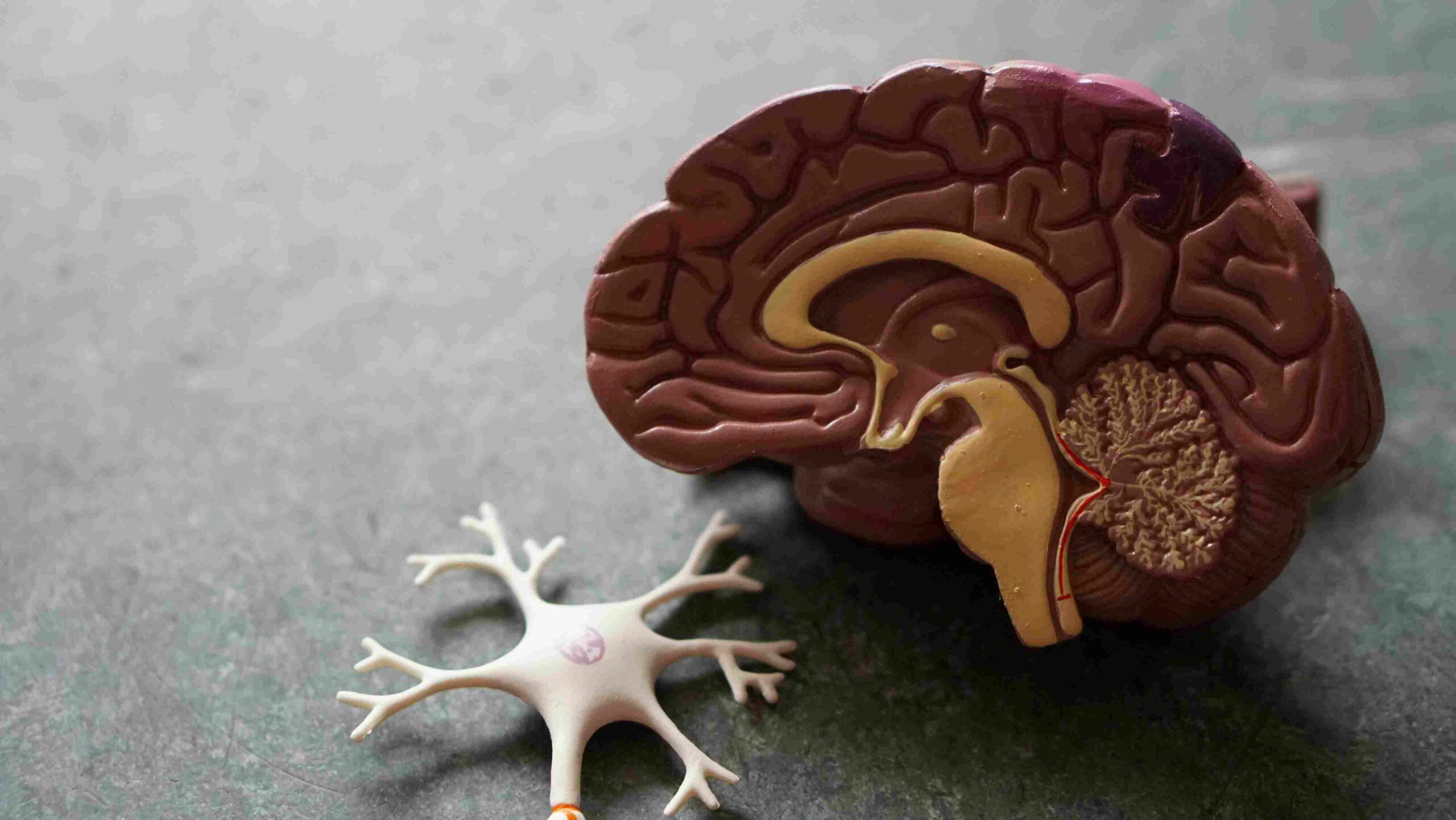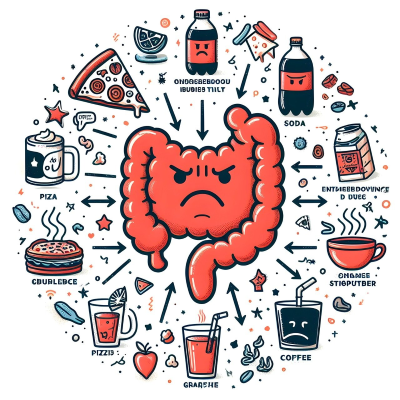
The human gut is often referred to as the “second brain” due to its intricate connection with the central nervous system and its ability to influence both physical and mental health. This relationship between the gut and brain, known as the gut-brain axis, plays a vital role in managing a wide range of bodily functions. In this article, we will explore how these two systems are connected, their mutual influence, the consequences of an imbalanced gut, and how proper nutrition and lifestyle changes can promote gut health. We’ll answer the question Why the Gut is Called the “Second Brain”.
The Gut-Brain Connection
The gut-brain axis refers to the bidirectional communication network between the gut and the brain. This connection is primarily mediated through the vagus nerve, one of the longest nerves in the body, which sends signals back and forth between these two organs. Additionally, hormones and neurotransmitters produced in the gut, such as serotonin and dopamine, play crucial roles in mood regulation, digestion, and overall health.
One fascinating aspect of the gut-brain connection is the presence of the enteric nervous system (ENS), a network of neurons located in the gut. This system is so complex that it is often called the “second brain.” While it cannot produce thoughts or consciousness, the ENS independently controls digestion, including the movement of food, secretion of digestive enzymes, and absorption of nutrients. The gut also houses trillions of microorganisms, collectively known as the gut microbiome, which significantly influences brain function and mood.
Functions Managed by the Gut-Brain Axis
Digestion:
The gut-brain axis regulates the mechanical and chemical breakdown of food. The brain can influence gut motility (how fast or slow the digestive system moves) through the vagus nerve, while the gut sends signals about hunger and fullness to the brain.
Mood and Emotion:
Approximately 90% of the body’s serotonin, a key neurotransmitter involved in mood regulation, is produced in the gut. An imbalanced gut can lead to issues like anxiety, depression, and mood swings due to disrupted serotonin production.
Immune Response:
The gut is a major component of the immune system, with about 70% of immune cells residing there. The gut microbiome helps regulate the immune response and protect against pathogens.
Stress Response:
Chronic stress can disrupt the gut microbiome, leading to inflammation and digestive issues. Conversely, gut dysfunction can increase stress levels and contribute to anxiety and depression.
What Happens When the Gut Doesn’t Function Well?
When the gut is not functioning optimally, it can trigger a cascade of health issues that impact both the body and brain. Common symptoms of poor gut health include bloating, constipation, diarrhea, food intolerances, and nutrient deficiencies. On a broader level, gut imbalances have been linked to conditions such as:
Irritable Bowel Syndrome (IBS):
This condition, characterized by chronic digestive discomfort, is often associated with an imbalanced gut microbiome and dysregulated gut-brain communication.
Leaky Gut Syndrome:
When the gut lining becomes damaged, toxins and bacteria can “leak” into the bloodstream, triggering inflammation and contributing to autoimmune diseases and food sensitivities.
Chronic Inflammation:
Poor gut health can lead to systemic inflammation, which is a risk factor for numerous chronic diseases, including heart disease, diabetes, and even neurodegenerative conditions like Alzheimer’s disease.
How the Brain is Affected by Gut Dysfunction
Given the strong connection between the gut and the brain, any dysfunction in the gut can have a profound impact on mental and cognitive health. Individuals with gut imbalances often report symptoms like brain fog, difficulty concentrating, fatigue, and mood disorders. The gut microbiome directly affects the production of neurotransmitters that regulate mood, sleep, and cognitive function, meaning that when the gut is out of balance, so too is the brain.
Moreover, emerging research suggests a link between gut health and neurodevelopmental conditions such as autism and ADHD, highlighting the importance of a healthy gut-brain axis for overall mental well-being.
Gut-Related Diseases Linked to Nutrition
Several gut-related diseases are closely associated with poor dietary habits. These include:
Celiac Disease:
An autoimmune disorder triggered by gluten, which causes inflammation and damage to the small intestine.
Crohn’s Disease:
A type of inflammatory bowel disease (IBD) that can cause severe digestive discomfort, often linked to diet.
Non-Celiac Gluten Sensitivity:
While not an autoimmune condition, individuals with gluten sensitivity may experience digestive discomfort and inflammation after consuming gluten-containing foods.
Small Intestinal Bacterial Overgrowth (SIBO):
This occurs when there is an overgrowth of bacteria in the small intestine, often due to poor diet and impaired gut motility.

Non-Medication-Based Approaches for Gut Health
While medication is often necessary for severe cases of gut-related diseases, many individuals can improve gut health through natural methods, including dietary changes, physical activity, and stress management. Key non-medication strategies include:
Probiotics and Fermented Foods:
Probiotic supplements and fermented foods like sauerkraut, kimchi, and kombucha can help restore the balance of good bacteria in the gut, improving digestion and immune function.
Fiber-Rich Diet:
Eating a diet high in fiber (from vegetables, legumes, and whole grains) promotes regular bowel movements and provides food for beneficial gut bacteria.
Hydration:
Drinking enough water is essential for healthy digestion and can help prevent constipation.
Intermittent Fasting:
Giving the digestive system periodic breaks through intermittent fasting may help reduce inflammation and support gut healing.
Recommended Physical Activities for Gut Health
Moderate physical activity is highly beneficial for gut health. Regular exercise stimulates healthy bowel movements, reduces stress levels, and can help maintain a balanced gut microbiome. Activities such as:
Walking:
A gentle, low-impact exercise that can support digestion and improve gut motility.
Yoga:
Yoga poses, particularly those that focus on twisting and stretching the abdominal area, can help relieve bloating and improve digestion.
Swimming:
Swimming is a full-body workout that promotes relaxation and circulation, both of which contribute to a healthier gut.
Dietary Considerations for a Healthy Gut
A gut-friendly diet focuses on anti-inflammatory, nutrient-dense foods that support digestion and gut microbiome balance. Key dietary recommendations include:
Increase fiber intake:
Fiber is essential for feeding beneficial bacteria in the gut and promoting healthy digestion. Foods rich in fiber include leafy greens, legumes, seeds, and whole grains like quinoa.
Incorporate fermented foods:
These foods provide probiotics that replenish healthy gut bacteria. Examples include vinegar, fermented turnips ,sauerkraut, kimchi, miso, and kombucha.
Consume polyphenol-rich foods:
Polyphenols, found in foods like berries, green tea, and dark chocolate, support the growth of beneficial gut bacteria.
Include omega-3 fatty acids:
Found in fish, flaxseeds, and chia seeds, omega-3s help reduce inflammation in the gut and support overall digestive health.

Recommended Vitamins and Minerals for Gut Health
Several vitamins and minerals play an important role in maintaining a healthy gut and preventing digestive disorders. Key nutrients include:
Vitamin D:
Important for immune regulation and gut lining integrity, vitamin D deficiency is linked to inflammatory bowel disease and leaky gut.
Magnesium:
Magnesium supports healthy bowel movements and helps prevent constipation.
Zinc:
Zinc is crucial for maintaining gut barrier function and immune health.
B Vitamins:
B vitamins, particularly B6, B12, and folate, are essential for energy production and proper digestion.
Glutamine:
An amino acid that helps repair and maintain the gut lining, glutamine is often recommended for individuals with leaky gut or other digestive disorders.
Foods to Avoid for Gut Health
Certain foods can disrupt gut health by promoting inflammation, unbalancing gut bacteria, or irritating the digestive system. It is advisable to avoid:
Processed foods and refined sugars:
These foods can promote the growth of harmful bacteria and contribute to inflammation.
Gluten-containing foods:
For individuals with gluten sensitivity or celiac disease, gluten can cause significant damage to the gut lining.
Dairy products:
Dairy is a common trigger for inflammation and digestive issues, especially in individuals who are lactose intolerant or sensitive.
Artificial sweeteners:
Some artificial sweeteners, such as aspartame, can disrupt the gut microbiome and cause digestive discomfort.

Conclusion
The gut truly functions as the body’s “second brain,” influencing everything from digestion and immunity to mood and cognition. When the gut is out of balance, the entire body, including the brain, can suffer. By adopting a nutrient-dense, anti-inflammatory diet, incorporating regular physical activity, and making stress management a priority, you can support a healthy gut-brain connection and improve overall well-being.
Subscribe to our newsletter, follow us on social media to let us know how you’re working towards a balanced life!
Oral Health: Causes, Prevention, and the Role of Nutrition
Oral health is often a neglected part of our...
Food Allergies: Causes, Symptoms, and Management
Food allergies and sensitivities are...
Unintentional Weight Loss
Unintentional weight loss can be distressing,...
The Negative Impacts of Plastic Usage on Health and the Environment
Plastic has revolutionized modern life,...
The Impact of Social Media on Body Image: How It Affects Women’s Health
Social media has transformed how we connect,...
Why Women Need Nutrition Counseling Beyond Weight Loss
Women face unique challenges when it comes to...
The Benefits of Journaling for Mental Health
Journaling has gained recognition as a powerful...
Minimalism and Health: The Effects of a Minimalist Lifestyle on Mental and Physical Well-being
Living in a world where consumerism and constant...
Physical activity: Cardio, Strength Training, Yoga, and Pilates
Engagement in regular physical activity is...










